Cats meow for lots of reasons. This we know. But did you know that cats use their mighty meows as a way to communicate with us humans, not to each other? From the time that they are precious little kittens, felines use meowing as a way to communicate with their mothers. They do so as a mean to alert them of their wants and needs. But as they mature, meows are then used to communicate only with humans. They save the growling, hissing and yowling for each other.
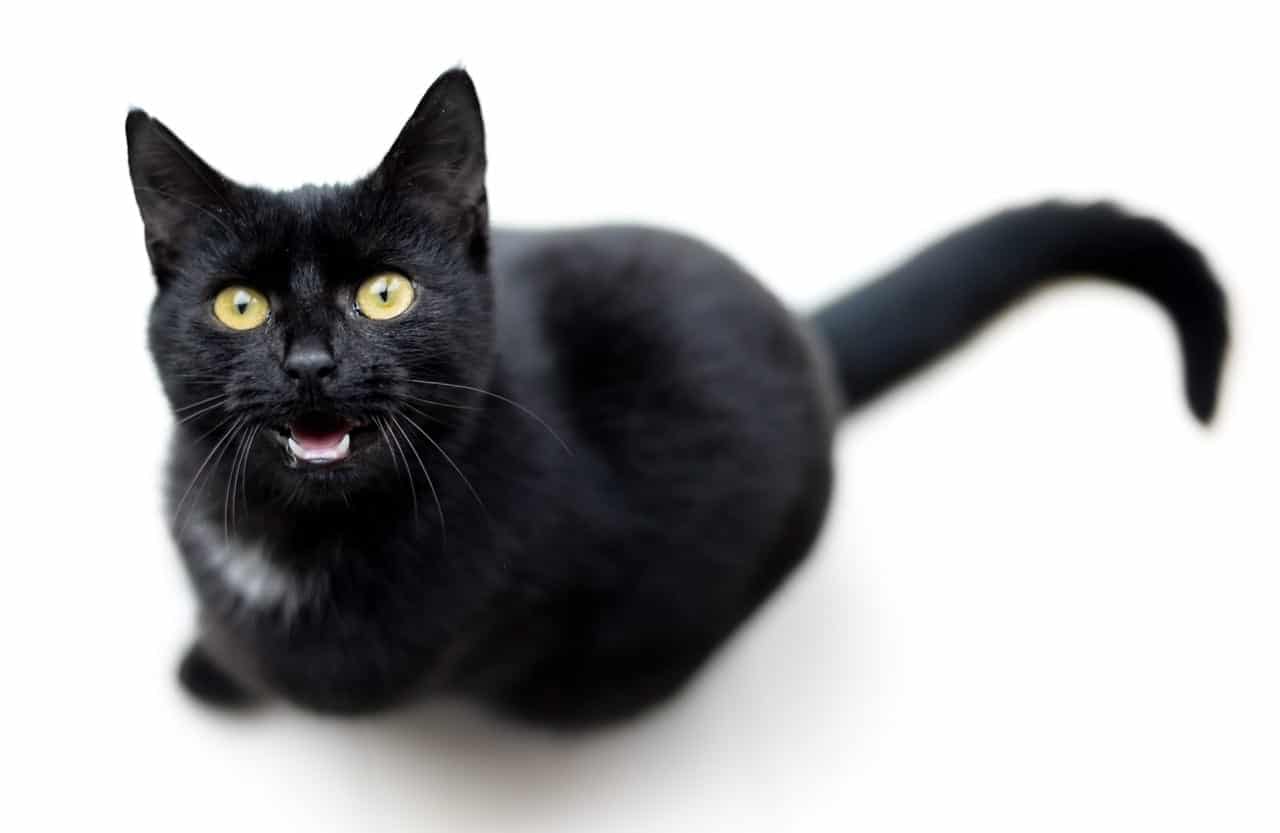
For us keepers of cats, we distinctively know our cat’s meowing like the back of our hand.
There’s the “feed me now” meow…the “where are you right meow” kitty call, and a handful of others that we’ve come to decipher and decode over the years as we care for our felines in our homes.
But aside from the obvious meows we’ve come to easily recognize, there are a number of reasons why your cat keeps meowing at you–and some of them could be a sign of something much more serious.
1. Illness
We all know that there are some breeds of cats, like the Siamese and Oriental Shorthair, that are naturally chatty cats. But if your cat is suddenly meowing more than usual, this may be a sign that they are ill. Regardless of a cat’s age, a cat is susceptible to developing an overactive thyroid or kidney disease, and both of these medical conditions can lead to excessive vocalizations. Be a proactive pet parent and take your feline friend to your local veterinarian to have them examined. You can never be too careful when it comes to your precious kitty.
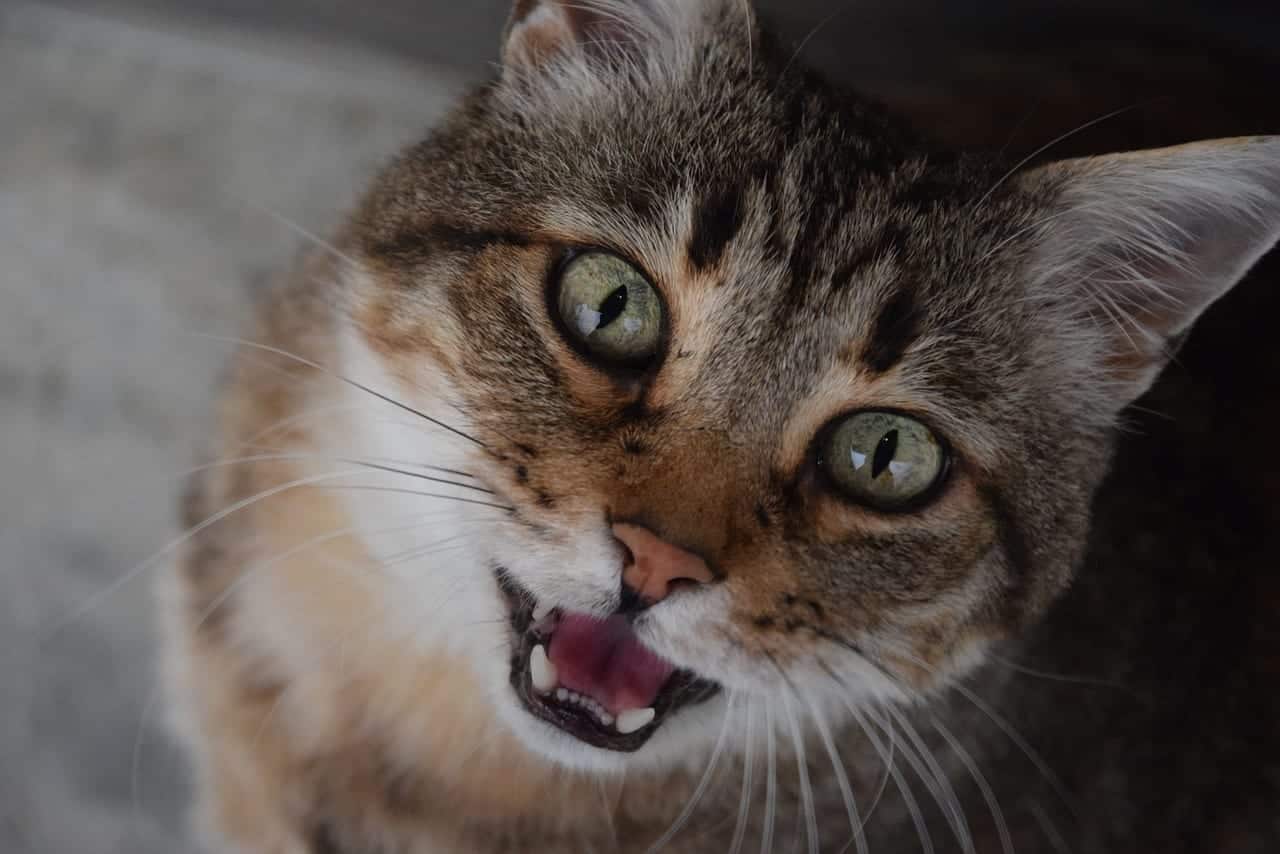
2. Pain
Cats are the masters of hiding their pain, and sadly, this is why painful illnesses/ailments go undetected in many cats until their routine vet visits. If your cat keeps meowing at you, especially when you go to pick them up or when you pet them, this could be a telltale sign that your cat is experiencing pain somewhere in their body. Definitely take them in to be examined so they aren’t forced to suffer in silence.
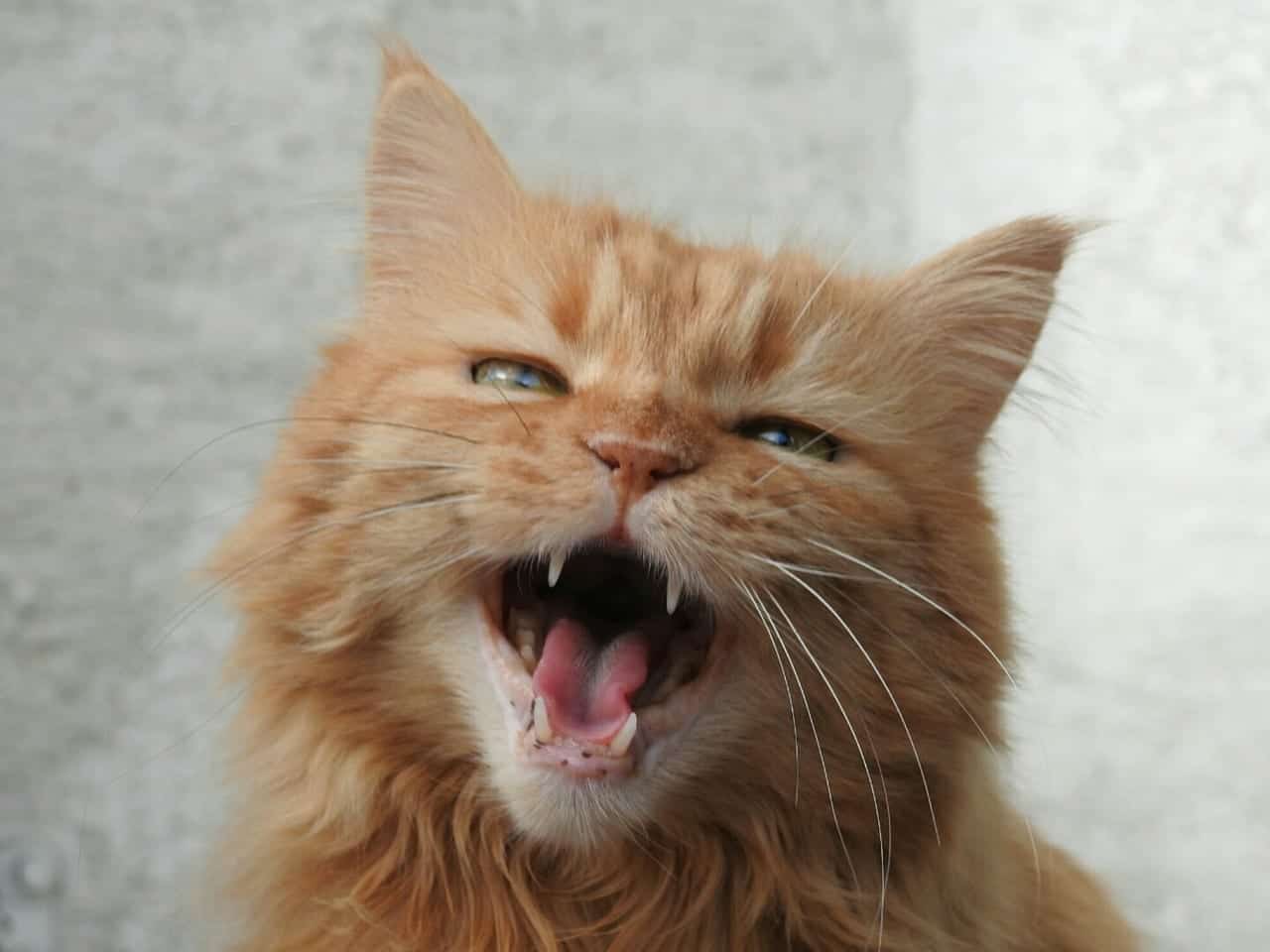
3. They Want Attention, And They Want it Right Meowing!
Despite the common misconception to non-feline enthusiasts that cats are aloof and anti-social creatures, cats prefer to be social with those they trust and love. A cat may sleep an average of 15 hours per day, but when they aren’t sleeping, they prefer to spend time playing and being surrounded by their chosen humans. Remember, a tired cat is a quiet cat. If you engage in play with your kitty throughout the daytime than you’re a lot less likely to hear them meowing at you–especially at night when you’re trying to catch some sleep.
4. Hello, it’s me, Your Kitty!
We say “hello” when we see each other, right? So why should your cat be any different? Cats will often meow as a means to greet you–even if you’ve only been away for a short period of time. Take their meowy greetings as them wanting you to know just how much they missed you while you were gone. If you’re feeling silly, meow right back at them!
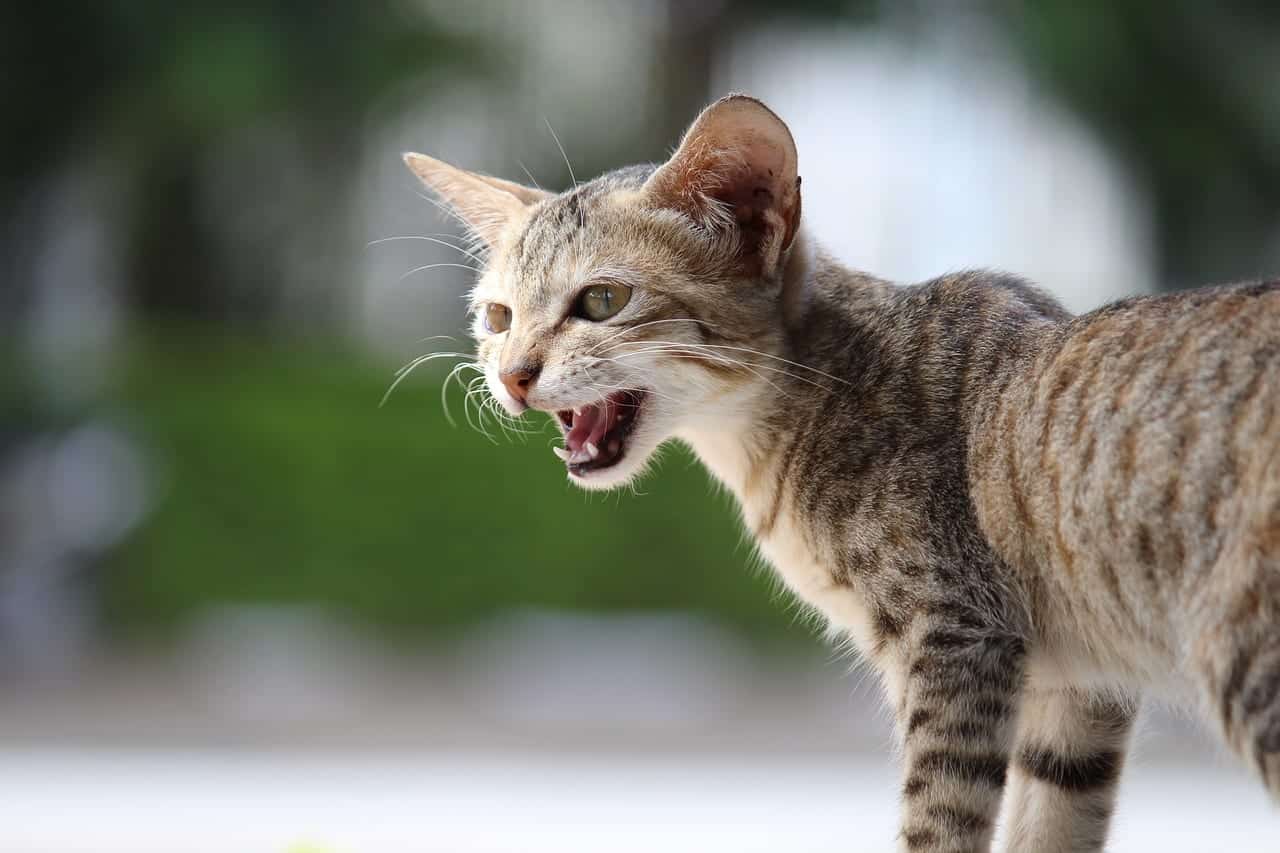
5. You Might Have a Stressed Kitty on Your Hands…
Sometimes when we are stressed, we have a desire to vent to make our points heard. Your cat is the same in this sense. Has anything occurred recently that would have upset your cat? Perhaps a move or a new addition to the family? Be sure to spend some extra time with your kitty to help alleviate their stress, and it will serve as a great way to bond in the process!
6. Meowing Kitty Wants to Get Frisky
Hopefully we are all following good ol’ Bob Barker’s sound advice and having our cats spayed or neutered, because if you have an unaltered male or non-spayed cat in your home and they are meowing their little lungs out, chances are they are looking to get frisky with another kitty. Please do your best to keep them indoors to prevent unwanted litters. Female cats can breed 3x a year, with an average of 4 kittens per litter.
In just seven years, one unspayed female cat and her offspring can produce 420,000 kittens! That’s a whole lot of cats, let’s do our best to keep those numbers nowhere close to that and keep frisky kitties indoors, or better yet, spayed or neutered.
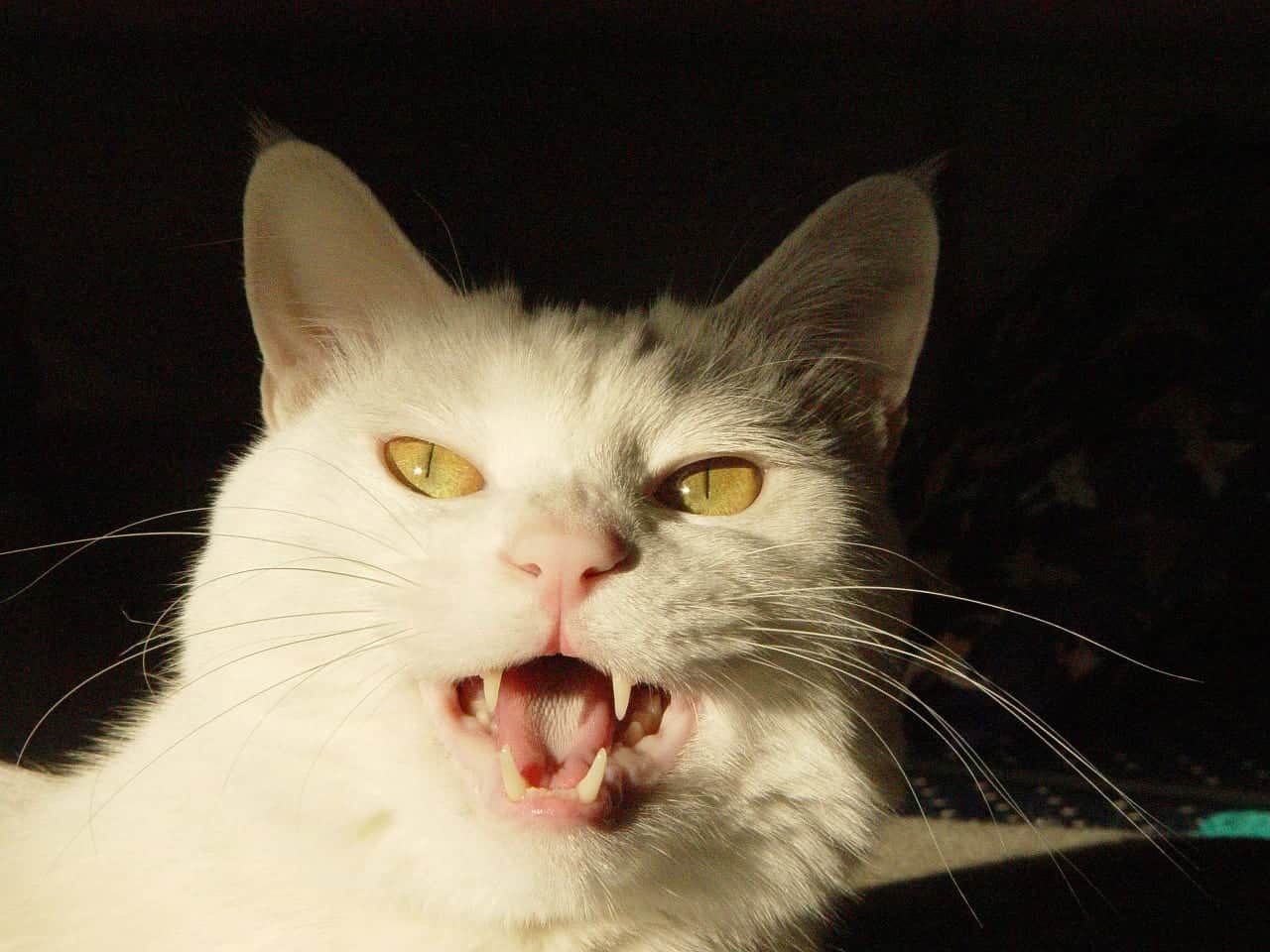
7. An Aging Cat May Lead to a More Vocal Cat
As a cat gets older, they’re declining health may lead to mental confusion and/or cognitive dysfunction which can result in a suddenly vocal cat. A cat’s vision can also become affected as they age, which could could also be another reason for their sudden onset of meows as one of their strongest senses declines. Your aging cat may call to you and seek comfort and prefer to be closer to your side as a means of feel safe and secure. Let your cat know you’re right there by their side. They’ll appreciate you for it, we promise.
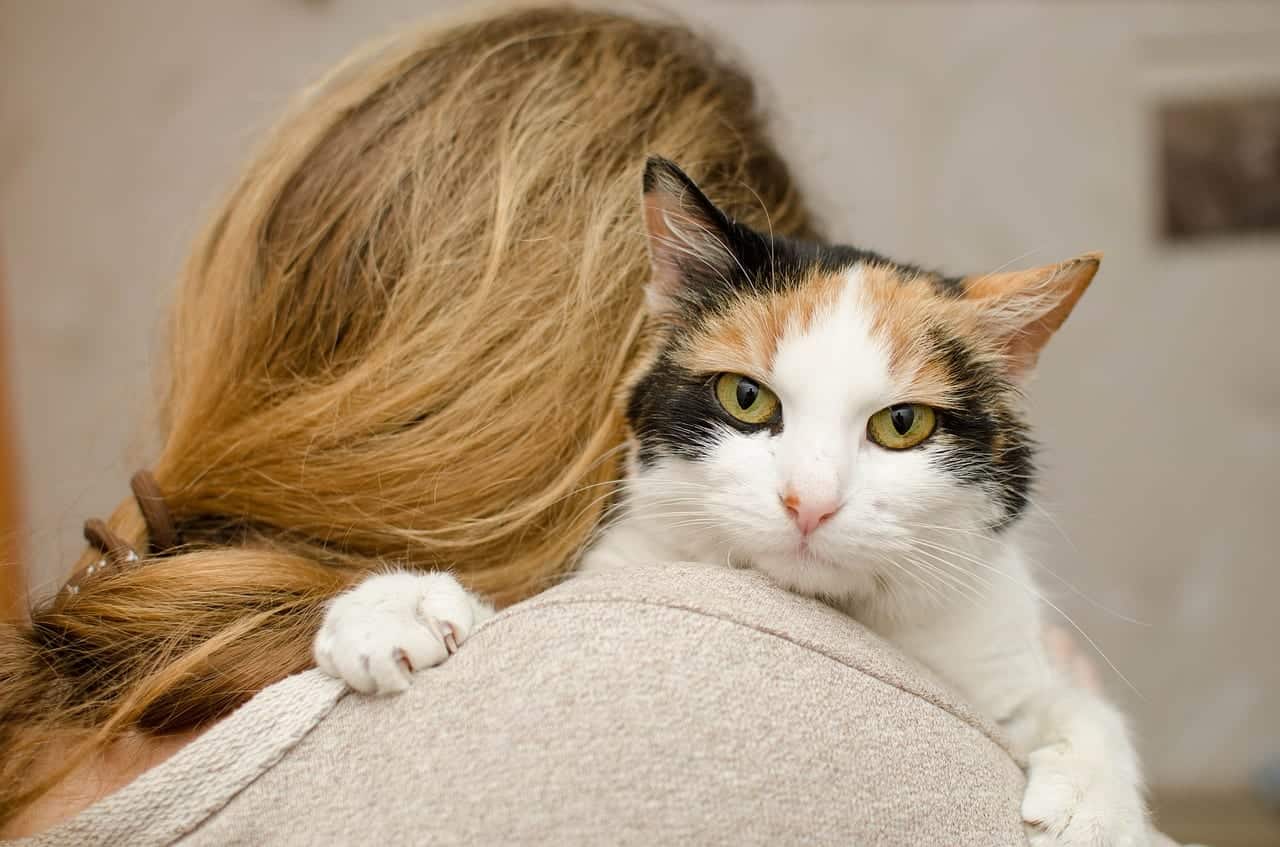
If you have a cat that is meowing excessively, it’s best to get down to the root of the cause. And if your cat uses their meows to get what they want from you, looks like they must have you trained pretty well! No matter what, never for any reason punish a cat for meowing. This is the only way that they have to communicate with us humans, and sometimes we need to work to figure out what it is to decode our chatty Cathy kitty cat.


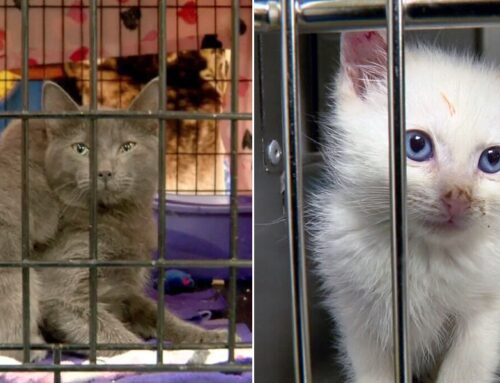
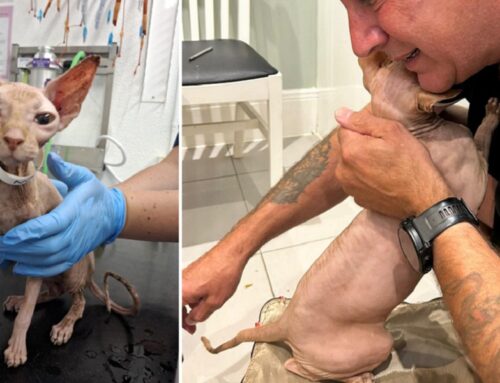
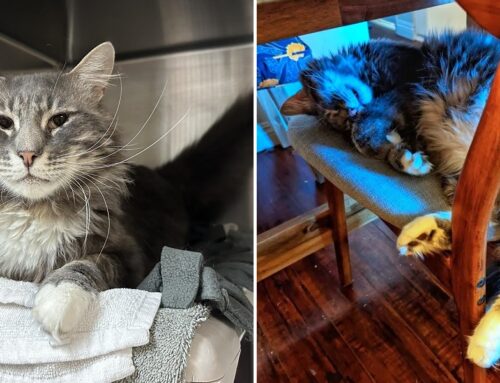
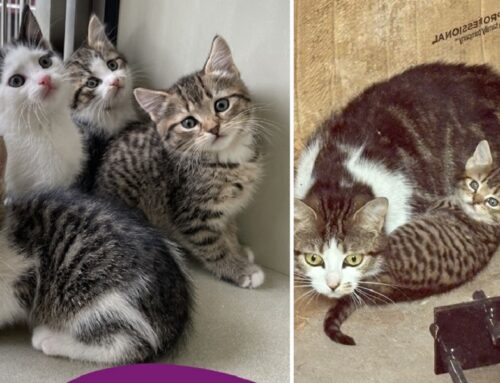
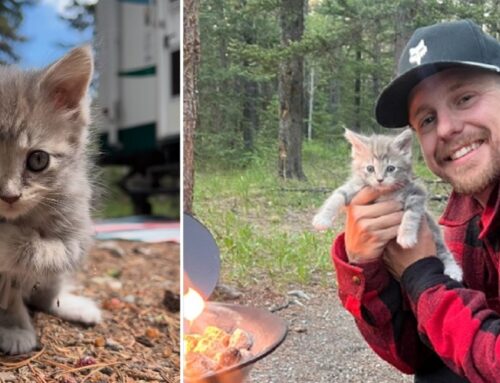

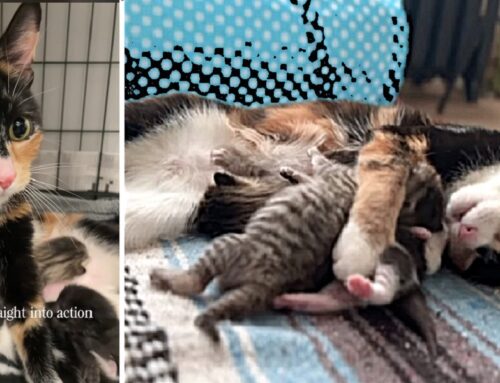
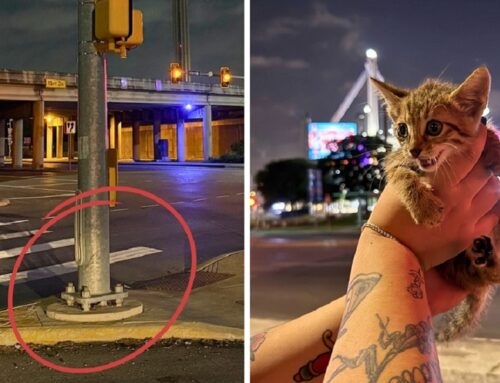
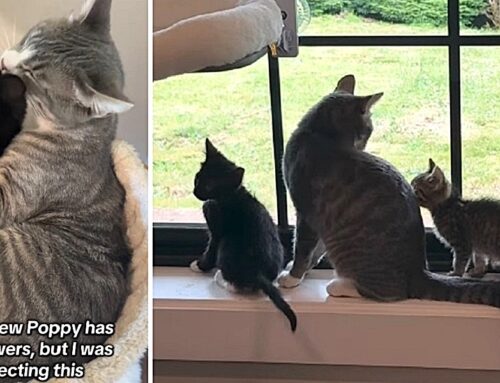
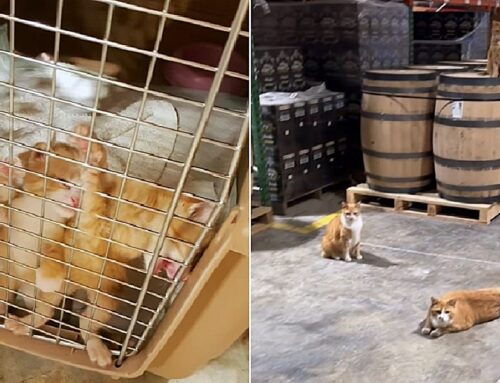
Very helpful, thank you..
Dear Cole, Marm, Chris, Jess, Jugg and Ziggy,
I follow you for years now. You are such a wonderful “cat tribe”.
Chris and Jess, you are doing such an amazing “job” saving cats, I love you guys !!!
Just a comment on this article.
If I may, I disagree when you are saying that as cats mature, meows are then used to communicate only with humans. It is a legend or it does not apply to Norwegian Forest Cats. I have Norwegian Forest cats for 20 years. They meows a lot to communicate with each others. I don’t know if it is specific to this breed but it is so funny seeing them talking loudly to each others. My daily radio 😉
Sorry for my bad English, I am French.
Biiig hugs to you all and a special kiss to Cole,
Love,
Isa
Thanks and that’s very interesting to hear about the Norwegian Forest Cats!
I have a Wegie, and I’ve met many others. They don’t tend to meow at each other. Meowing doesn’t *mean* anything to a cat. Now, some cats who have bonded DO meow at each other if encouraged (laughter, attention, etc.) or it is *possible* that it can become a game if they’re otherwise bored, but I have only heard anecdotes of this. I’ve studied it, as have others. We’re talking good, hard science. We’ve tried to find it, it just isn’t there.
If you have evidence, I would love to see it though. I’m always willing to give any evidence a glance. But every time I’ve investigated one of these cases, it has turned out that the owners were simply misinterpreting what was happening.
Your English is so much better than many ‘native ‘ speakers!!!
A great friend of ours is from Belgium and he has been in the United States for only 6/7 years! We met him when he tutored my son in 3rd and 4th semester French at our local Community College. I saw and talked to him every day when I picked up my son and I had no idea he was not a ‘native speaker ‘ his English was so good until he told me!!! His native language is French. He said he learned English from watching TV. Over time he picked up a bunch of ‘new stuff ‘ from hanging around with my son and me.
You have No apologies to make!
good article
We took in a stray, he’s at least 6 to 9 years of age and he is neutured. He meows a lot every evening. We let him out on the patio most every evening and he calms down for a bit while he’s outside but when he comes back in a few minutes later he starts meowing excessively. He has fresh food and water and a clean litter box. I can’t get him into a carrier because he freaks out (I’m guessing he had a bad experience). I even tried using a collar and leash but I can’t get it on him. We are at a loss. After while he is tired and lies down for the evening. Often, I’ll rub, brush and coo to him to relax him some. We don’t know what else to do.
Catio?
It is NOT true that cats only meow to humans. With my own kitties and fosters and other fosters’ kitties, we have all noticed (and there is some video documentation) that cats will vocalize with “meows” to each other. I have no idea why this incorrect information is still being promoted.
I have a rescue kitty who, like human kids I know, ignores me until I am on the phone and then finds me and loudly expresses HER opinions in a “cat fight” tone of voice, which is her normal speaking voice. This is extremely embarrassing when you are trying to have a serious conversation with a professional (like a doctor) and have to excuse yourself while you put kitty in “time out”. Seriously, I think the more you try to talk to your cat, either in their language or in yours, the more they will try to communicate with you. This is good, for all the reasons outlined in this article, especially if your kitty is going through a rough patch, physically or emotionally. We only have to LISTEN!
my kitties are talkers and they usually want food, love or an open window
My cat has been excessively meowing since his sister died. I’m going to take from that that he’s just lonely. But I am trying to get him a playmate.
If your cat is asking for too much attention bring another kitten for him/her , It is always better to have pair of cats this will make them more happy.
My wife and I had four cats, and we have three now. I have noticed that the cats used vocalizations among each other. I also noticed that they even try to reproduce the sounds of their names. I have seen it when one cat called for the other cat, and the other cat came running.
Thank you for the item on the reasons your cat may be meowing at you. I found it very helpful and I will watch out for any abnormal amount of meowing from my cat Sammy. He is a handsome black 16 year old cat and I love him dearly.